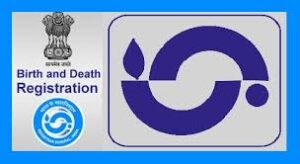GS2 – Governance

Context:
The Registrar General of India (RGI) has issued a warning to both public and private healthcare institutions, urging them to report all birth and death occurrences within 21 days.
Concerns Highlighted by RGI:
- Incomplete Registration: The RGI has pointed out that nearly 10% of birth and death cases across the country go unregistered.
- Main Causes:
- Hospitals Evading Responsibility: Many hospitals do not proactively register these events. Instead, they wait for family members of the newborn or deceased to initiate the process.
- Private Hospitals’ Practices: Several private hospitals fail to inform the local registrar and instead direct the families to handle registration on their own.
- Lack of Citizen-Friendly Services: Some registration offices do not offer convenient services to the public. The RGI has emphasized that birth and death certificates should be issued within a week.
Legal Provisions Regarding Registration:
- Mandatory Reporting: The Registration of Births and Deaths (RBD) Act, 1969, which was revised in 2023, mandates the registration of all such events.
- Hospitals’ Role: Private healthcare providers must inform the local registrar about births and deaths within their premises so that the families can obtain the necessary certificates.
- Role of RGI: The RBD Act authorizes the RGI to oversee and coordinate the work of Chief Registrars appointed by each state.
- Central Database: The amended 2023 law requires Chief Registrars and local registrars to share data with the Centre, which is compiled and maintained by the RGI as part of a national database.
- Digital Registration under CRS: The Civil Registration System (CRS), overseen by the RGI, designates government hospitals as registration authorities. As per the new rules, all registrations must be made digitally through the CRS portal.
Penalties for Non-Compliance:
- Under Section 23(2) of the RBD Act, registrars can be fined for failing to register a birth or death. The recent amendment has increased the penalty from ₹50 to ₹1,000.
Why CRS-Based Registration is Crucial:
- Updating the NPR: Information collected is crucial for updating the National Population Register (NPR), and also supports documents like ration cards, property deeds, and voter lists.
- The NPR, originally compiled in 2010 and revised in 2015 via house-to-house surveys, currently includes details of around 119 crore individuals.
- It serves as the preliminary step toward creating the National Register of Citizens, as outlined in the Citizenship Act of 1955.
- NPR updates have been stalled, pending the first phase of the next Census, which has not yet been scheduled.
- Policy and Program Planning: The data obtained helps in formulating socio-economic policies and evaluating the reach and impact of government welfare programs. Additionally, it plays a vital role in the planning and management of public health systems.




